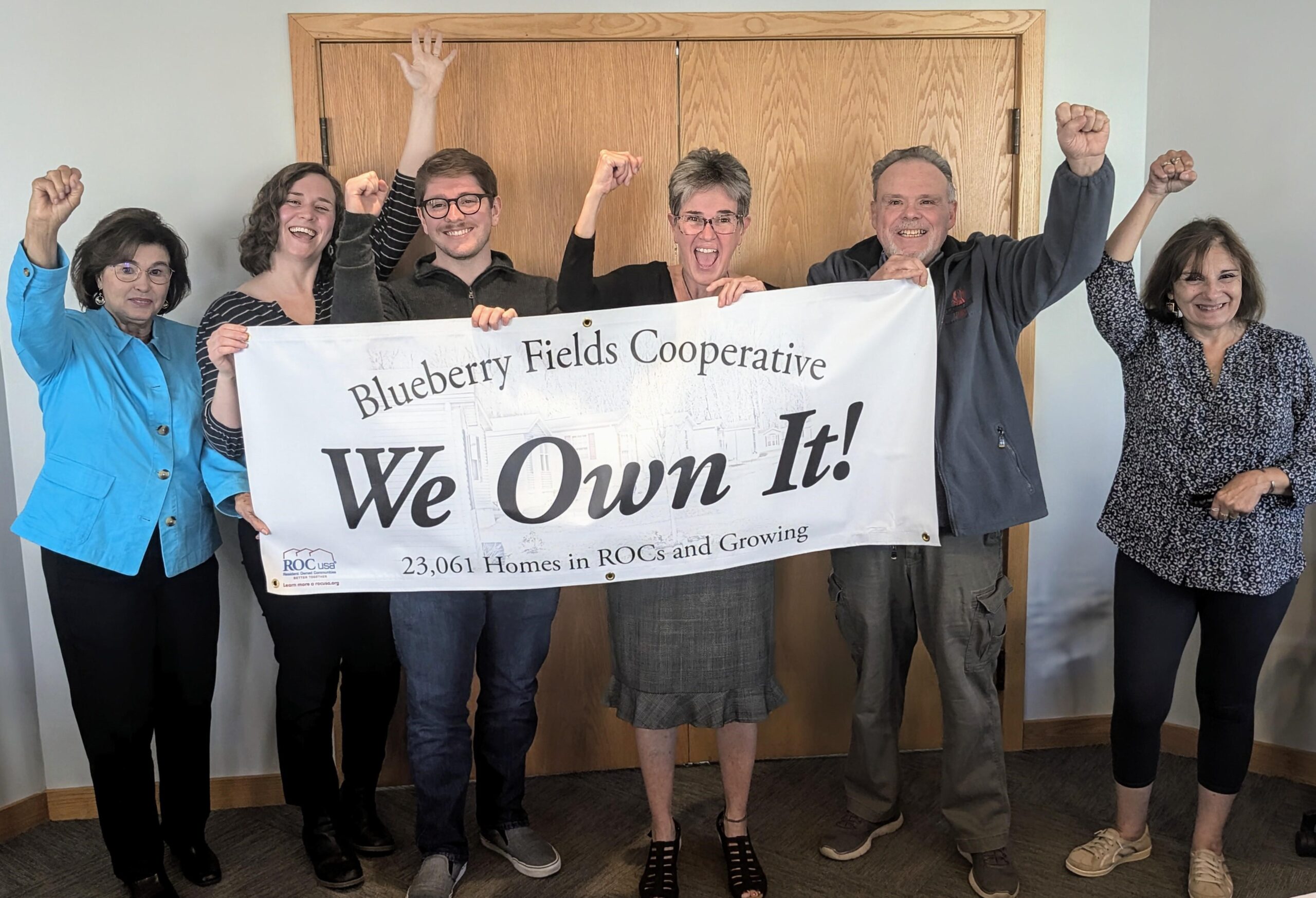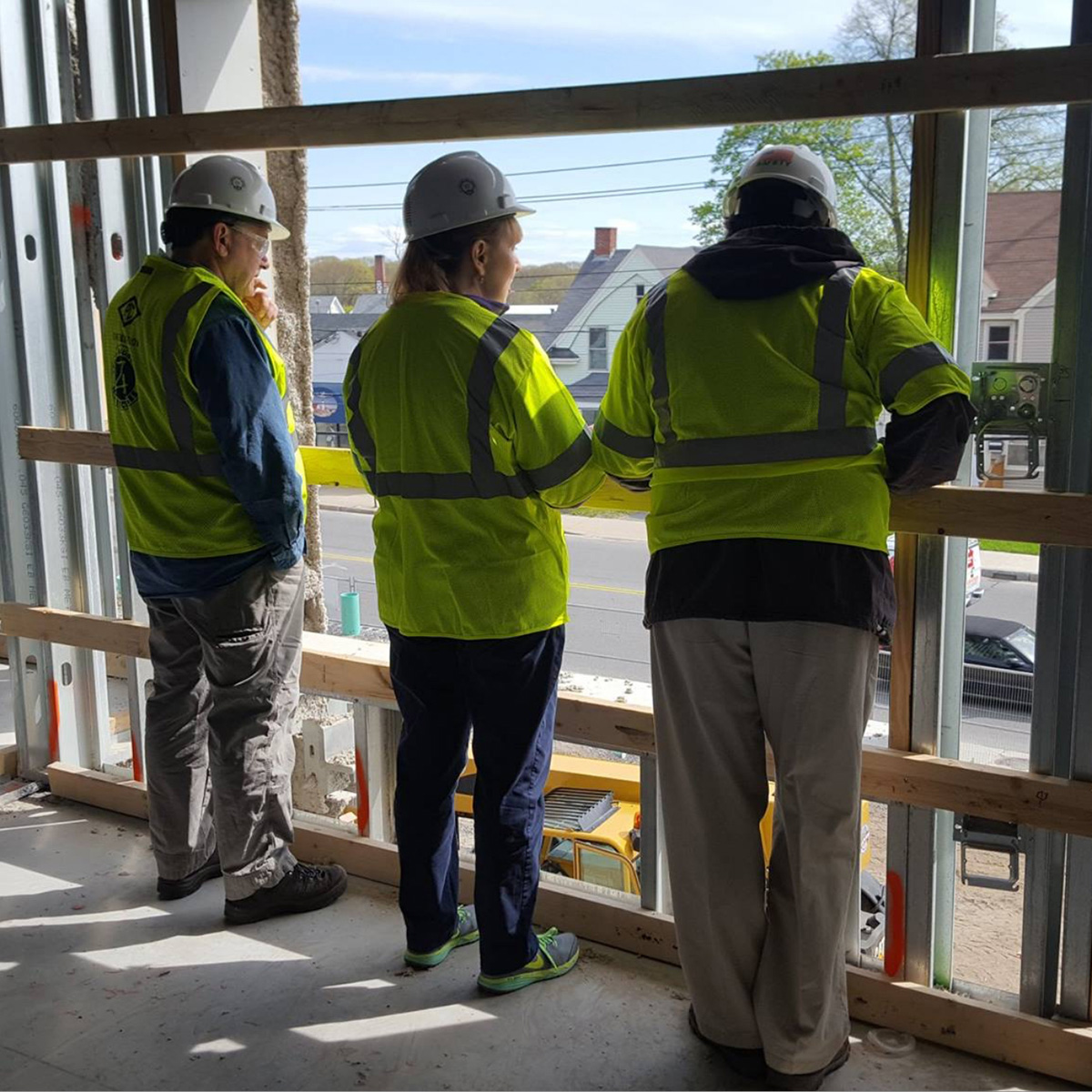
Preserving Affordable Housing
The Right Tools and Support Make Ownership Possible for Residents of Mobile Home Communities
By Liza Fleming-Ives, Genesis executive director
Fifteen years ago, Genesis introduced a transformative model to Maine aimed at empowering mobile home park residents. The goal was simple but groundbreaking: help residents secure the affordability of their homes by organizing and cooperatively purchasing the land beneath them.
Starting with the success of a small group of residents in Waldoboro who formed the Medomak Mobile Home Cooperative, Genesis worked over the years with nine more mobile home communities. We partnered with the Cooperative Development Institute to provide guidance, while Genesis financed purchases and, in some cases, brought the funding for critical infrastructure improvements.
Number 11
Last month, the most recent success of that extraordinary model culminated with a party!
In Brunswick, Maine Governor Janet Mills joined the residents of the newly formed Blueberry Fields Cooperative to celebrate their purchase of the former Linnhaven Mobile Home Center. They have created what is now the 11th and largest resident-owned community in the state.
MaineHousing, Genesis, M&T Bank, and the Town of Brunswick committed $27 million in financing for residents to buy their community’s land under Maine’s new Opportunity to Purchase law, which provides residents with notification and a chance to make an offer when a mobile home community is put up for sale.
Guided by the Cooperative Development Institute through their organizing and purchase, the residents of the Blueberry Fields Cooperative have achieved a milestone that will keep 278 homes affordable for years to come.
Owning the Land
Given Maine’s affordable housing crisis, it’s crucial to protect our existing affordable housing stock while we also develop new affordable housing. Mobile home communities are a critical part of the affordable housing landscape, and resident ownership is one of the most effective ways of protecting them from being lost to rising land costs or speculative buyers.
Residents of investor-owned parks are vulnerable to rent hikes, land use changes, and even closures, all of which can be provoked by ownership changes. But when individuals and families who have invested in their mobile homes get the chance to own the land beneath them, they can protect themselves from potential displacement while gaining a sense of security, agency, and pride in their community’s future.
Not all Maine mobile home communities have been successful in making resident-owned purchases since the new Opportunity to Purchase law was put in place. Earlier in 2024, the residents of Atlantic Village and Old Orchard Village in Old Orchard Beach were denied the chance to purchase their parks, as the owners opted to sell to an out-of-state buyer.
That disappointing outcome was widely publicized in southern Maine, and it highlighted the importance of local, state, and lender collaboration to support resident ownership. Genesis worked to make sure other mobile home community owners heard, loud and clear, that community banks and nonprofit lenders stand ready to assist residents with their purchasing opportunities.
Looking Ahead
The story of Blueberry Fields Cooperative exemplifies that resources and tools from lenders and other community partners can put ownership in reach for the residents of mobile home communities. But they must organize, with both energy and patience. And it’s the owners, ultimately, who decide who they will sell to.
As with similar successes in Maine and other parts of northern New England, Blueberry Fields residents drove the outcome with their determination, believing their community was worth fighting for. From knocking on doors to organizing many meetings, their collective effort inspired the broad coalition of funders and other partners who came together to help meet the sales price and guide the purchase through closing.
Residents say the experience has created stronger ties within their community, which can make them more resilient in facing, together, the challenges of ownership and management.
“Before starting this process, I didn’t know my neighbors well,” said Maranda Chung, a resident who lives at Blueberry Fields with her three-year-old daughter and husband. She told the New York Times the community feels “closer.”
Genesis will continue to play a leadership role among our funding peers and engage with state leaders. We’re grateful to the policymakers who gave Maine mobile home residents the first chance to purchase their communities and created the Mobile Home Park Preservation Fund, which aided the Blueberry Fields Cooperative purchase. There’s more to do to preserve and expand affordable housing.
With the right resources, determination, and collaboration, resident ownership is transformative and should remain a key strategy in preserving and expanding affordable housing. It is our hope that the milestone success of Blueberry Fields Cooperative will be an inspiring example for other mobile home communities who face sales in the future.

